The Orthodox Christian Church welcomes all faiths to its growing number of places of worship
By Maxmilian Wechsler
By Maxmilian Wechsler
| FROM a trickle of visitors in the mid-1990s to a torrent today, Russians are certainly making their presence felt in Thailand. Last year, some 1.3 million vacationed here, making Russia this country’s third largest source of tourists. Over the years, many Russians have stayed on, opening businesses, hotels and building new lives here. This Russian ‘invasion’ has been accompanied by a significant increase in cultural and religious reminders of its homeland. Back in 1999, the Orthodox Christian Church established a presence with the opening of the St. Nicholas’ Chapel in Bangkok. Today, there are six churches of the same faith in various parts of the country. Another is under construction and yet another is being planned. Interestingly, these churches attract not only Russians and Orthodox believers from other countries residing in Thailand, but also a growing number of Thais. Part of the attraction is its reputation as a willing helper of people with a wide range of problems regardless of their faith. |
The good work and popularity of the church can be largely attributed to a certain heavily-built Russian man known for his magnanimous nature, Archimandrite Oleg (Oleg Mikhailovich Cherepanin), the representative of the Russian Orthodox Church, also referred to as the Moscow Patriarchate, in Thailand. He has served the church here with compassion and devotion for over 14 years.
Archimandrite Oleg described how the church started in Thailand: “After numerous letters from Russians residing in the Kingdom were sent to the late Patriarch, His Holiness Alexy II in Moscow, I was sent here in 1999 to observe and evaluate the spiritual situation of the Orthodox believers in Thailand and South East Asia.
“What I learned then was that not only Russians but also Orthodox believers from Bulgaria, Greece, Romania and other Western countries didn’t have any formal establishments for their spiritual care. I reported this to His Holiness and he blessed my efforts to set up an Orthodox parish in Bangkok. We opened the St. Nicholas’ Chapel on December 29, 1999 and I was appointed its rector.
“After that, people started coming to worship and pray, with more and more Russians, other foreigners and Thais joining in the services. Thais are increasingly interested in the Orthodox Church and it is gaining many followers here. Some of these Thai believers are married to Russians, and they prefer to be Orthodox because it is easier for their family life.
“We don’t call ourselves the Russian Orthodox Church here, but we are under His Holiness Patriarch Kirill of the Moscow Patriarchate, who was elevated to his position in 2009. Anyone can attend our services but only Orthodox believers can take part in the sacraments.
“Orthodoxy is the biggest religion in Russia, with about 85 per cent of the population being followers, but not all of them attend church services.”
Prior to meeting Archimandrite Oleg for this interview, I attended the service in the small St. Nicholas’ Chapel located off Sukhothai Road for a better understanding of the church’s work. It was full of Thai and foreign worshippers when I arrived, and a Russian couple with two children came later with an infant who was baptized by Archimandrite Oleg.
After the service I sat and talked with him for the second time in three years in his small office. We were joined by his long-time aid, Russian-born Vladimir Buntilov, PhD.
“At present we have six churches in Thailand. Recently we had the opening ceremony for a new church on the island of Koh Samui, and we have already started to make preparations for the construction of our eighth church in Hua Hin.
“However, the most important project for us right now is the church now being built in Bangkok on Sukhumvit Road Soi 101/1.”
The Archimandrite explained the reason for the second church in Bangkok. “The St. Nicholas’ Chapel is the only building we rent, and because the rental fee has been going up constantly, we decided to buy land and build a new church.
“To build a church costs a lot of money. You need to buy land, construct the church and decorate it, which is expensive. Our people decided to collect donations for the project and within four months we had collected about US$1 million. We bought the land and began construction, and we hope to move to the new church in December. the move we will close the St. Nicholas’ Chapel.
“Currently we have two churches in Pattaya, one in Phuket, one in Koh Samui and a large monastery in Ratchaburi province. We also have two parishes in Cambodia which are also under my responsibility,” said Archimandrite Oleg.
Most of the attendees at the chapel were Thais. “Apart from diplomats and other officials, not many Russians live in Bangkok. Most prefer to live near beaches, like in Pattaya or Phuket.
“It is hard to say how many Russians actually reside in Thailand. I believe that not so many live here all-year round. Most just stay during the tourist high season and then move back to Russia or to another country. Russians who run business in Thailand often go to another country, like Egypt, when the low season starts as well.
Archimandrite Oleg described how the church started in Thailand: “After numerous letters from Russians residing in the Kingdom were sent to the late Patriarch, His Holiness Alexy II in Moscow, I was sent here in 1999 to observe and evaluate the spiritual situation of the Orthodox believers in Thailand and South East Asia.
“What I learned then was that not only Russians but also Orthodox believers from Bulgaria, Greece, Romania and other Western countries didn’t have any formal establishments for their spiritual care. I reported this to His Holiness and he blessed my efforts to set up an Orthodox parish in Bangkok. We opened the St. Nicholas’ Chapel on December 29, 1999 and I was appointed its rector.
“After that, people started coming to worship and pray, with more and more Russians, other foreigners and Thais joining in the services. Thais are increasingly interested in the Orthodox Church and it is gaining many followers here. Some of these Thai believers are married to Russians, and they prefer to be Orthodox because it is easier for their family life.
“We don’t call ourselves the Russian Orthodox Church here, but we are under His Holiness Patriarch Kirill of the Moscow Patriarchate, who was elevated to his position in 2009. Anyone can attend our services but only Orthodox believers can take part in the sacraments.
“Orthodoxy is the biggest religion in Russia, with about 85 per cent of the population being followers, but not all of them attend church services.”
Prior to meeting Archimandrite Oleg for this interview, I attended the service in the small St. Nicholas’ Chapel located off Sukhothai Road for a better understanding of the church’s work. It was full of Thai and foreign worshippers when I arrived, and a Russian couple with two children came later with an infant who was baptized by Archimandrite Oleg.
After the service I sat and talked with him for the second time in three years in his small office. We were joined by his long-time aid, Russian-born Vladimir Buntilov, PhD.
“At present we have six churches in Thailand. Recently we had the opening ceremony for a new church on the island of Koh Samui, and we have already started to make preparations for the construction of our eighth church in Hua Hin.
“However, the most important project for us right now is the church now being built in Bangkok on Sukhumvit Road Soi 101/1.”
The Archimandrite explained the reason for the second church in Bangkok. “The St. Nicholas’ Chapel is the only building we rent, and because the rental fee has been going up constantly, we decided to buy land and build a new church.
“To build a church costs a lot of money. You need to buy land, construct the church and decorate it, which is expensive. Our people decided to collect donations for the project and within four months we had collected about US$1 million. We bought the land and began construction, and we hope to move to the new church in December. the move we will close the St. Nicholas’ Chapel.
“Currently we have two churches in Pattaya, one in Phuket, one in Koh Samui and a large monastery in Ratchaburi province. We also have two parishes in Cambodia which are also under my responsibility,” said Archimandrite Oleg.
Most of the attendees at the chapel were Thais. “Apart from diplomats and other officials, not many Russians live in Bangkok. Most prefer to live near beaches, like in Pattaya or Phuket.
“It is hard to say how many Russians actually reside in Thailand. I believe that not so many live here all-year round. Most just stay during the tourist high season and then move back to Russia or to another country. Russians who run business in Thailand often go to another country, like Egypt, when the low season starts as well.
“I estimate that the number of Russians living in Thailand is between 60,000 and 100,000. Maybe 15,000 reside in Pattaya during the low season and 50,000 during the high season. Not many Russians live in Phuket in comparison to Pattaya, but wealthy Russians prefer Phuket because the living standard is higher. Middle class Russians choose Pattaya.
“Russians have started visiting and living in Hua Hin. Their numbers are likely to increase, especially those with children because Pattaya is not the best place for a family. They also prefer Hua Hin if they find Phuket too expensive.”
This is what Archimandrite Oleg told me about Pattaya three years ago: “It is very difficult for me to come and stay here. I don’t feel so good. All the sin [associated with the city] has some bad energy and you can feel it. You can feel the atmosphere of the sin. I can stay for one or two nights, but after that I become sick and want to go back to Bangkok.”
Today, his mood is different. “Back then I said I didn’t feel very well in Pattaya, but now I feel better because step by step the local officials have been trying to change its image. It is important for them to continue in this effort and I wish them all success. I don’t know, maybe it is only me, but when I walk on the street in Pattaya it seems that the girls and the boys [sex workers] aren’t so aggressive and intrusive as before. Maybe also I feel better because I don’t visit Pattaya as often as before because I need to visit other churches in the country.”
Watching over the Orthodox congregation in Thailand keeps Archimandrite Oleg very busy. “I travel frequently, mostly by car, driving myself, or by plane. A major part of my activities in Thailand is to maintain contact with the Thai government, embassies, police and other officials,” he said.
“Maybe it is a Russian tradition more than in other countries, but when something happens, the people, even non-believers, will come to church. I may never have seen them before and they know nothing about the religion, but when, for example, they lose money, they will come to church. When they are sitting in prison, they will write to the church. When they have a problem with the police or Thai people, they will come to church. When they have lost their passport, they will also come to church, and so on.
“People will come to me when they have no money, when they are sick and with other problems. This applies not only to Russians but to Orthodox believers of other nationalities.
“Sometimes, a Russian citizen sitting in prison or in the immigration detention center will contact me to help since dealing with the embassy is difficult because of the many papers necessary to apply for assistance.
“For us, cutting through the bureaucracy is easy. I can go to pay the fine and they can go back to Russia. I also help sick people without having to go to the embassy. With so many Russian citizens asking for help – I wouldn’t have time to do anything else if I always went through the embassy,” Archimandrite Oleg said.
“We try to help everyone as much as we can. We talk to the police and to other Thai authorities. Of course, every nationality has good and bad people, but often Russians here face problems not because they have done something bad, but because they don’t have enough knowledge about the Thai culture, traditions and way of life.
“Our Russian priests and other people in the church here study the Thai language and culture for one year. If after one year they can’t learn the language, they leave as it is impossible for them to live in Thailand without knowing the language.
“We now have one Thai priest, Father Danai (Daniel) Wanna, and another Thai man is currently preparing and studying in Saint Petersburg in Russia to be a priest. I believe that we should have one Russian and one Thai priest in every church in Thailand because at present the believers are mostly Thais, Russians and other foreigners who can understand Russian. We also need an English-speaking priest. The Thai government has granted us 10 work permits.
“We have some social programs to help Thai people. We try to help anyone no matter their faith, whether they are Buddhist, Jewish, Muslim or any other religion. We will help everyone.”
“Russians have started visiting and living in Hua Hin. Their numbers are likely to increase, especially those with children because Pattaya is not the best place for a family. They also prefer Hua Hin if they find Phuket too expensive.”
This is what Archimandrite Oleg told me about Pattaya three years ago: “It is very difficult for me to come and stay here. I don’t feel so good. All the sin [associated with the city] has some bad energy and you can feel it. You can feel the atmosphere of the sin. I can stay for one or two nights, but after that I become sick and want to go back to Bangkok.”
Today, his mood is different. “Back then I said I didn’t feel very well in Pattaya, but now I feel better because step by step the local officials have been trying to change its image. It is important for them to continue in this effort and I wish them all success. I don’t know, maybe it is only me, but when I walk on the street in Pattaya it seems that the girls and the boys [sex workers] aren’t so aggressive and intrusive as before. Maybe also I feel better because I don’t visit Pattaya as often as before because I need to visit other churches in the country.”
Watching over the Orthodox congregation in Thailand keeps Archimandrite Oleg very busy. “I travel frequently, mostly by car, driving myself, or by plane. A major part of my activities in Thailand is to maintain contact with the Thai government, embassies, police and other officials,” he said.
“Maybe it is a Russian tradition more than in other countries, but when something happens, the people, even non-believers, will come to church. I may never have seen them before and they know nothing about the religion, but when, for example, they lose money, they will come to church. When they are sitting in prison, they will write to the church. When they have a problem with the police or Thai people, they will come to church. When they have lost their passport, they will also come to church, and so on.
“People will come to me when they have no money, when they are sick and with other problems. This applies not only to Russians but to Orthodox believers of other nationalities.
“Sometimes, a Russian citizen sitting in prison or in the immigration detention center will contact me to help since dealing with the embassy is difficult because of the many papers necessary to apply for assistance.
“For us, cutting through the bureaucracy is easy. I can go to pay the fine and they can go back to Russia. I also help sick people without having to go to the embassy. With so many Russian citizens asking for help – I wouldn’t have time to do anything else if I always went through the embassy,” Archimandrite Oleg said.
“We try to help everyone as much as we can. We talk to the police and to other Thai authorities. Of course, every nationality has good and bad people, but often Russians here face problems not because they have done something bad, but because they don’t have enough knowledge about the Thai culture, traditions and way of life.
“Our Russian priests and other people in the church here study the Thai language and culture for one year. If after one year they can’t learn the language, they leave as it is impossible for them to live in Thailand without knowing the language.
“We now have one Thai priest, Father Danai (Daniel) Wanna, and another Thai man is currently preparing and studying in Saint Petersburg in Russia to be a priest. I believe that we should have one Russian and one Thai priest in every church in Thailand because at present the believers are mostly Thais, Russians and other foreigners who can understand Russian. We also need an English-speaking priest. The Thai government has granted us 10 work permits.
“We have some social programs to help Thai people. We try to help anyone no matter their faith, whether they are Buddhist, Jewish, Muslim or any other religion. We will help everyone.”
During the 2010 floods, the church donated one million baht for the victims. Most of the donors were Russians residing in Thailand but other donations came from Russia, the US and other countries. There were even donations from Thai people.
Archimandrite Oleg welcomes the “absolute freedom of religion” in Thailand, and invites anyone to attend Orthodox Christian Church services here. “You could see during today’s service that it was held in Thai, English, Russian and a little Greek for one worshipper, because everybody is happy to hear the service in their own language.”
Normally, services in Pattaya and in Bangkok are attended by between 20 and 50 people. On special occasions, such as Easter Sunday, as many as 1,000 worshippers may join the service. “We have some people who won’t come to the church but will donate money because they understand the church needs to survive,” Archimandrite Oleg said.
A big admirer of Thailand, Archimandrite Oleg advises his fellow countrymen to learn more about their host nation.
“Many Russians live here for many years but they know nothing about the country and its culture. This is unacceptable,” Archimandrite Oleg said.
How do Thai people view Russians? “A few days ago I met with the governor of Chonburi province, Mr Komsan Ekachai, and I asked him the same question, because there has been a lot of talk about the ‘Russian mafia’ in Thailand.
“The governor said: ‘The mass media, whether they are in Russia, Thailand or in the US, write what they want, but the truth is that there’s no Russian mafia in Thailand, only hooligans.’
“Most problems caused by Russians in Thailand stem from a lack of knowledge about the Thai traditions and customs. For example, if two Russians are having a discussion back in Russia, they are often noisy, emotional, maybe making big gestures with their hands and so on. When a Russian speaks this way to a Thai, it is seen as aggressive behavior.
“I will give you an example: A Russian bought a green papaya from a street seller in Pattaya and couldn’t eat it because it was too hard. He complained to the seller because he didn’t realize it should be used to make ‘som tam’ (papaya salad), something he knew nothing about. He was shouting at the seller, who got afraid and called the police. Most problems like this occur in Pattaya.
Archimandrite Oleg welcomes the “absolute freedom of religion” in Thailand, and invites anyone to attend Orthodox Christian Church services here. “You could see during today’s service that it was held in Thai, English, Russian and a little Greek for one worshipper, because everybody is happy to hear the service in their own language.”
Normally, services in Pattaya and in Bangkok are attended by between 20 and 50 people. On special occasions, such as Easter Sunday, as many as 1,000 worshippers may join the service. “We have some people who won’t come to the church but will donate money because they understand the church needs to survive,” Archimandrite Oleg said.
A big admirer of Thailand, Archimandrite Oleg advises his fellow countrymen to learn more about their host nation.
“Many Russians live here for many years but they know nothing about the country and its culture. This is unacceptable,” Archimandrite Oleg said.
How do Thai people view Russians? “A few days ago I met with the governor of Chonburi province, Mr Komsan Ekachai, and I asked him the same question, because there has been a lot of talk about the ‘Russian mafia’ in Thailand.
“The governor said: ‘The mass media, whether they are in Russia, Thailand or in the US, write what they want, but the truth is that there’s no Russian mafia in Thailand, only hooligans.’
“Most problems caused by Russians in Thailand stem from a lack of knowledge about the Thai traditions and customs. For example, if two Russians are having a discussion back in Russia, they are often noisy, emotional, maybe making big gestures with their hands and so on. When a Russian speaks this way to a Thai, it is seen as aggressive behavior.
“I will give you an example: A Russian bought a green papaya from a street seller in Pattaya and couldn’t eat it because it was too hard. He complained to the seller because he didn’t realize it should be used to make ‘som tam’ (papaya salad), something he knew nothing about. He was shouting at the seller, who got afraid and called the police. Most problems like this occur in Pattaya.
“So we are telling Russians here to tone down their aggressive behavior when talking with the locals, that they shouldn’t speak loudly and lose their cool.
“I have been living and working in Thailand for over 14 years, and I know many people, some for a long time, and they know me, and we trust each other. At the beginning, they were a little bit tense because they didn’t know me but now they see our work and what we do. I am very gratified that our second church in Pattaya was financed entirely by Thai people.
“Someone once told me that church makes Russians more peaceful, and I believe it’s true. Sometimes Russians are very hard, including some businessmen, but when the priest comes to them they will listen to him. There is no guarantee that they will do what the priest says, but it has a soothing effect nevertheless.
To mark the 400th anniversary of the Romanov Dynasty, the church to be built in Hua Hin will be dedicated to Czar Nicholas Romanov, explained Archimandrite Oleg. “In December 2013, we will organize a concert and exhibition for the church with artists from Moscow. We’ve spoken with the Russian embassy because they have important photos of members of the dynasty and we are hoping they will loan these photos for the exhibition.
Asked about his future plans, Archimandrite Oleg answered: “This is a very funny question – who really knows the future? We cannot say what will happen to us in the next minute…I will pass from this Earth just like everyone else. You must remember that each day could be your last day, because if you remember this, you will never live in sin. You must try to live a good life. Many people have tried, but you can take nothing with you to the grave.”
“I have been living and working in Thailand for over 14 years, and I know many people, some for a long time, and they know me, and we trust each other. At the beginning, they were a little bit tense because they didn’t know me but now they see our work and what we do. I am very gratified that our second church in Pattaya was financed entirely by Thai people.
“Someone once told me that church makes Russians more peaceful, and I believe it’s true. Sometimes Russians are very hard, including some businessmen, but when the priest comes to them they will listen to him. There is no guarantee that they will do what the priest says, but it has a soothing effect nevertheless.
To mark the 400th anniversary of the Romanov Dynasty, the church to be built in Hua Hin will be dedicated to Czar Nicholas Romanov, explained Archimandrite Oleg. “In December 2013, we will organize a concert and exhibition for the church with artists from Moscow. We’ve spoken with the Russian embassy because they have important photos of members of the dynasty and we are hoping they will loan these photos for the exhibition.
Asked about his future plans, Archimandrite Oleg answered: “This is a very funny question – who really knows the future? We cannot say what will happen to us in the next minute…I will pass from this Earth just like everyone else. You must remember that each day could be your last day, because if you remember this, you will never live in sin. You must try to live a good life. Many people have tried, but you can take nothing with you to the grave.”
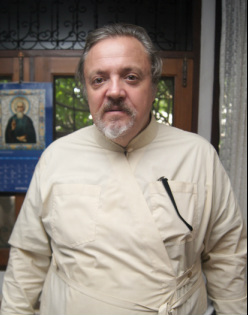
BACKGROUND OF ARCHIMANDRIDE OLEG MIKHAILOVICH CHEREPANIN
• Archimandrite Oleg Mikhailovich Cherepanin was born on November 30, 1961 in Homel, Belorussian SSR (now Belorussian Republic).
• In 1984 he became a private assistant of His Eminence John (Vendland), Metropolitan of Yaroslavl and Rostov. In the same year he entered Moscow Theological Seminary, which he finished with first grade honors in 1989.
• In 1985 he took his monastic vows and was ordained as hierodeacon by His Eminence Metropolitan John (Vendland).
• In 1986 he received mantiya and was ordained as hieromonk. He was appointed the rector of St. Innocent, Metropolitan of Moscow. Later he was transferred to Annunciation Church in Yaroslavl. After a year, he was appointed the Dean of St. Sergius of Radonezh’s Church, Tatishev Pogost, Rostov district, Yaroslavskaya region.
• In 1994, for his contribution to spiritual development of society, he was awarded the Order of Friendship by then Russian President Yeltsin.
• In 1995 he was awarded a golden pectoral cross by His Holiness Alexy II, and in 1998 was ordained as hegumen. In 2001, by the order of His Holiness Alexy II, he was awarded a cross with adornment.
• In 1997 he became the Head of the Missionary Committee of Yaroslavl Diocese, and was a lecturer in Yaroslavl theological school (comparative theology). He also served as Counselor of the Governor on interaction with religious associations.
• In 1999 he was sent to serve in the Kingdom of Thailand as the rector of St. Nicholas’ Chapel in Bangkok.
• By the Holy Synon’s decision of 26-27 December 2001, he was appointed Representative of the Russian Orthodox Church in Thailand with the mission to also give spiritual guidance to the Orthodox flock in Lao People’s Democratic Republic and the Kingdom of Cambodia.
• On December 19, 2007, he received a prize “For great service to his fellow countrymen” of the first grade.
• On December 19, 2009, he was honored with the rank of Archimandrite from His Holiness Kirill.
• On November 30, 2011, he was awarded with the order of Saint Innocent, Metropolitan of Moscow and Kolomna (3rd degree). On the same date he was awarded with the highest order of Russian Peace Foundation – golden medal “For the peacemaking and charitable activities.”
• Archimandrite Oleg Mikhailovich Cherepanin was born on November 30, 1961 in Homel, Belorussian SSR (now Belorussian Republic).
• In 1984 he became a private assistant of His Eminence John (Vendland), Metropolitan of Yaroslavl and Rostov. In the same year he entered Moscow Theological Seminary, which he finished with first grade honors in 1989.
• In 1985 he took his monastic vows and was ordained as hierodeacon by His Eminence Metropolitan John (Vendland).
• In 1986 he received mantiya and was ordained as hieromonk. He was appointed the rector of St. Innocent, Metropolitan of Moscow. Later he was transferred to Annunciation Church in Yaroslavl. After a year, he was appointed the Dean of St. Sergius of Radonezh’s Church, Tatishev Pogost, Rostov district, Yaroslavskaya region.
• In 1994, for his contribution to spiritual development of society, he was awarded the Order of Friendship by then Russian President Yeltsin.
• In 1995 he was awarded a golden pectoral cross by His Holiness Alexy II, and in 1998 was ordained as hegumen. In 2001, by the order of His Holiness Alexy II, he was awarded a cross with adornment.
• In 1997 he became the Head of the Missionary Committee of Yaroslavl Diocese, and was a lecturer in Yaroslavl theological school (comparative theology). He also served as Counselor of the Governor on interaction with religious associations.
• In 1999 he was sent to serve in the Kingdom of Thailand as the rector of St. Nicholas’ Chapel in Bangkok.
• By the Holy Synon’s decision of 26-27 December 2001, he was appointed Representative of the Russian Orthodox Church in Thailand with the mission to also give spiritual guidance to the Orthodox flock in Lao People’s Democratic Republic and the Kingdom of Cambodia.
• On December 19, 2007, he received a prize “For great service to his fellow countrymen” of the first grade.
• On December 19, 2009, he was honored with the rank of Archimandrite from His Holiness Kirill.
• On November 30, 2011, he was awarded with the order of Saint Innocent, Metropolitan of Moscow and Kolomna (3rd degree). On the same date he was awarded with the highest order of Russian Peace Foundation – golden medal “For the peacemaking and charitable activities.”

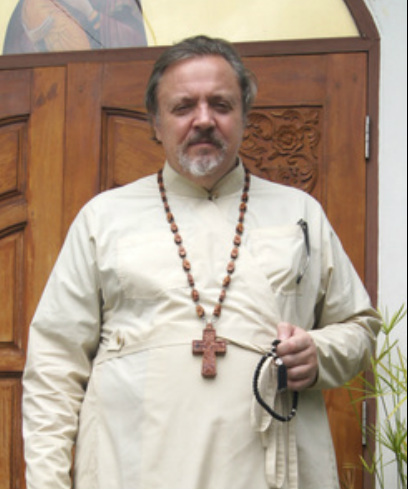
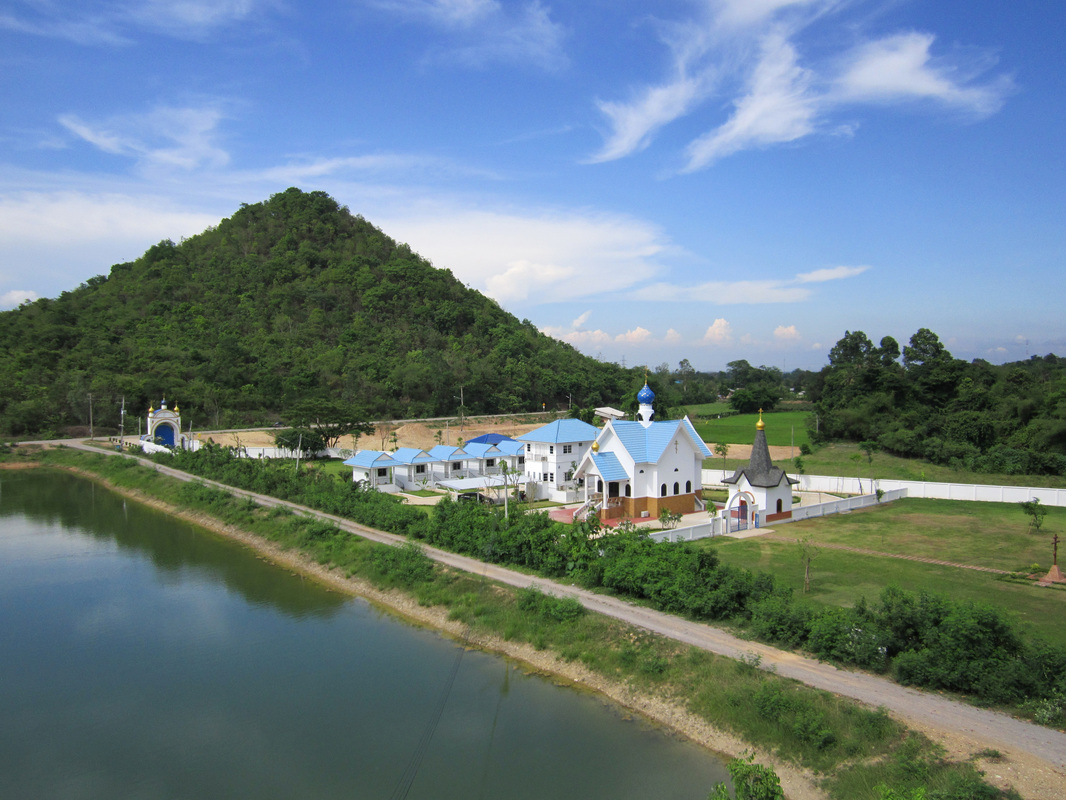
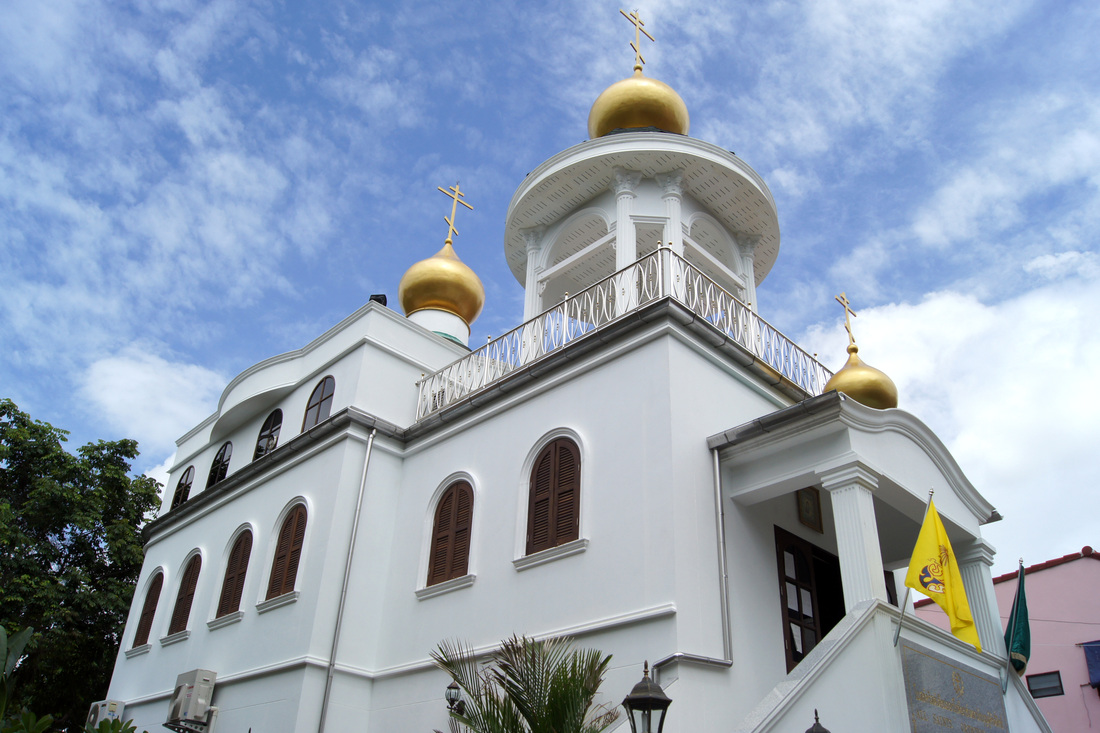
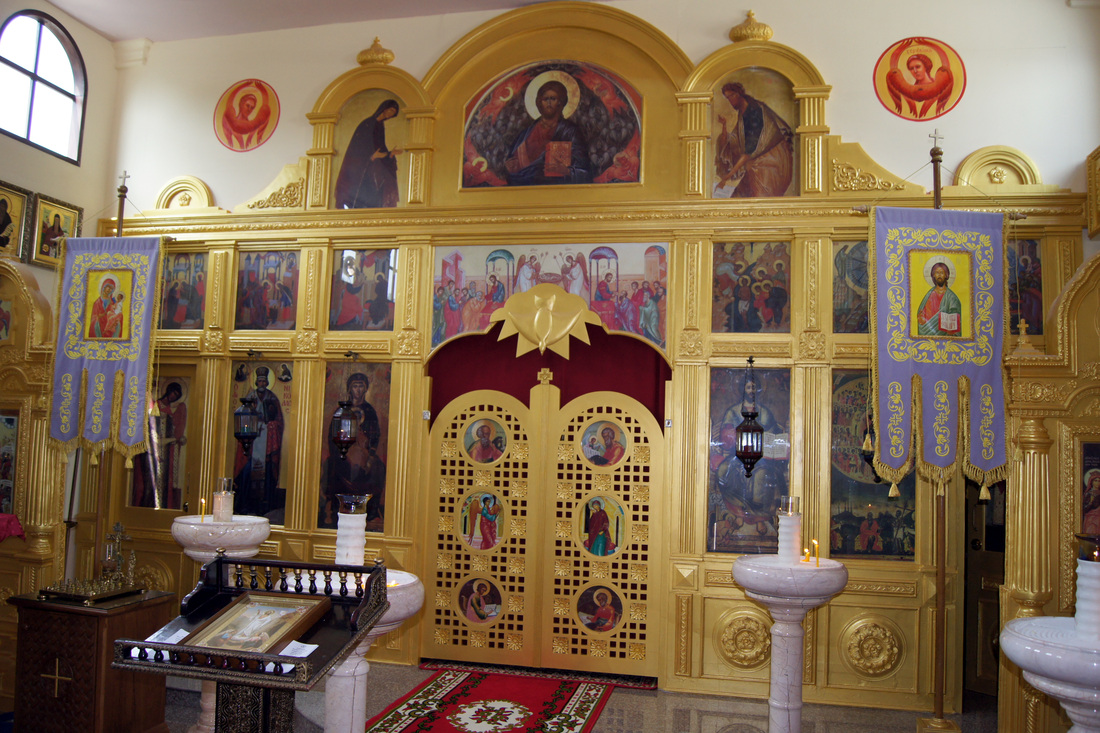
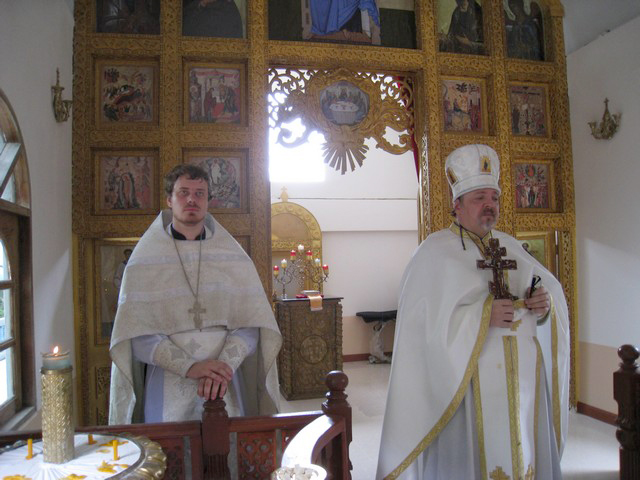
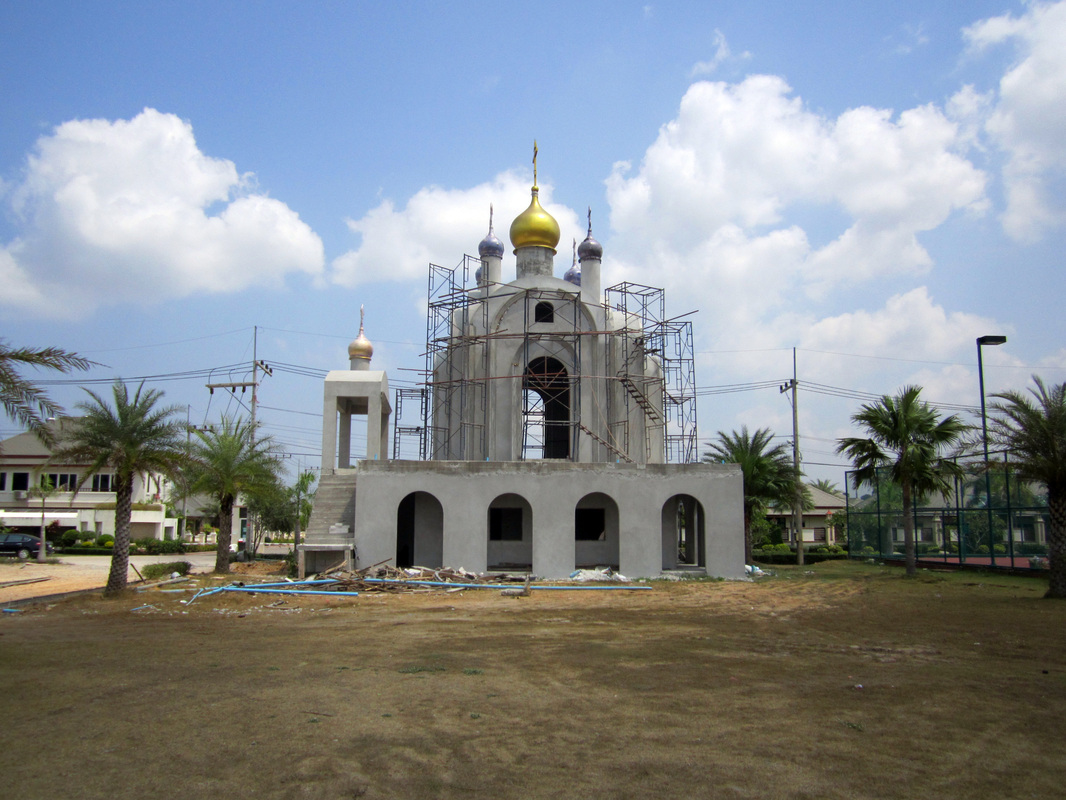
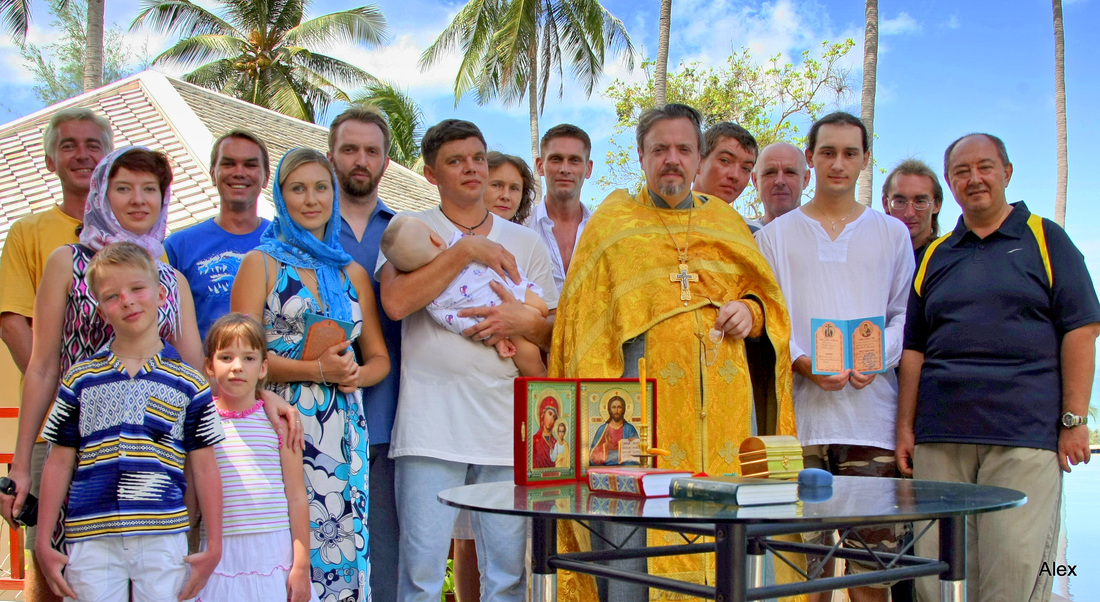
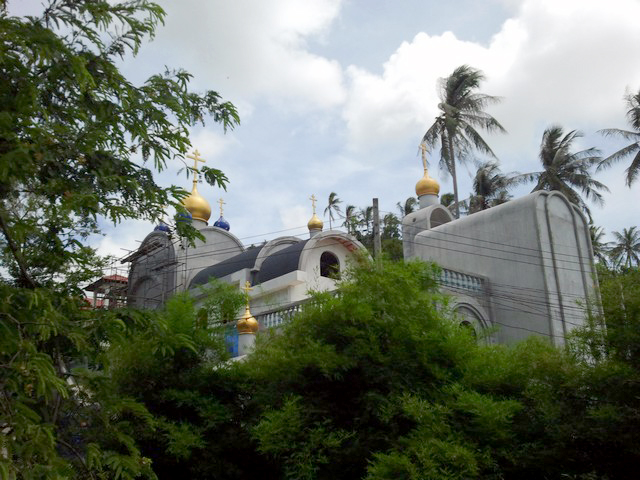
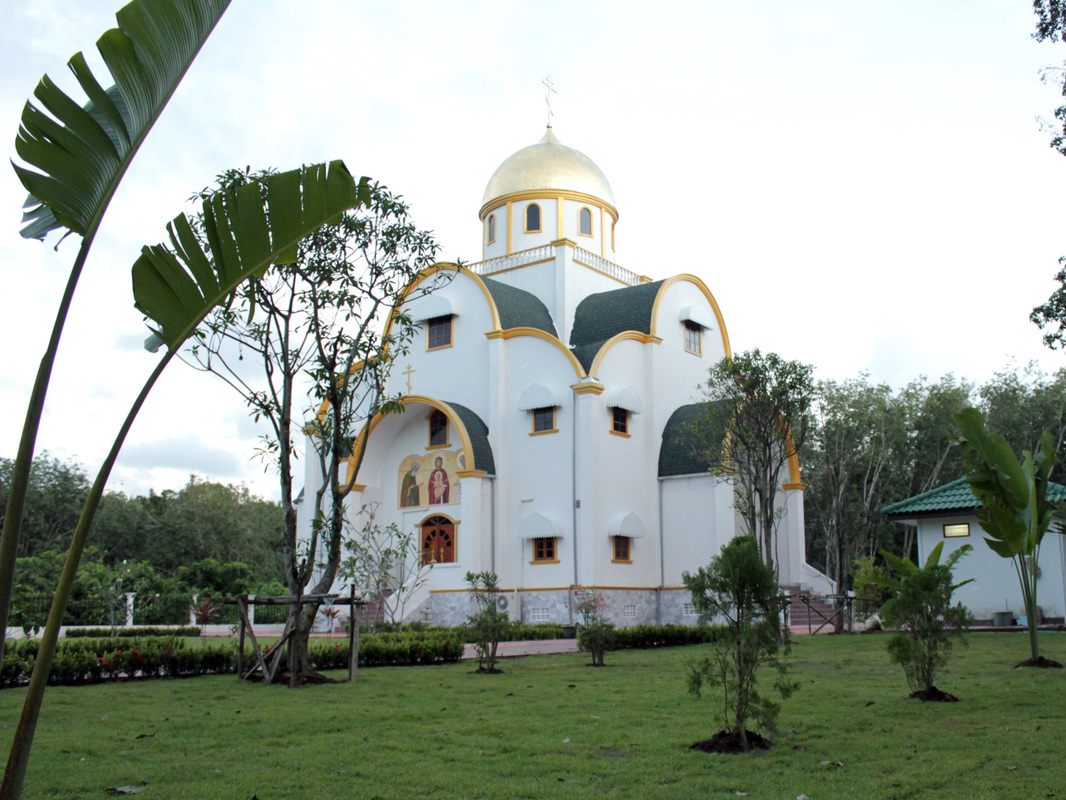
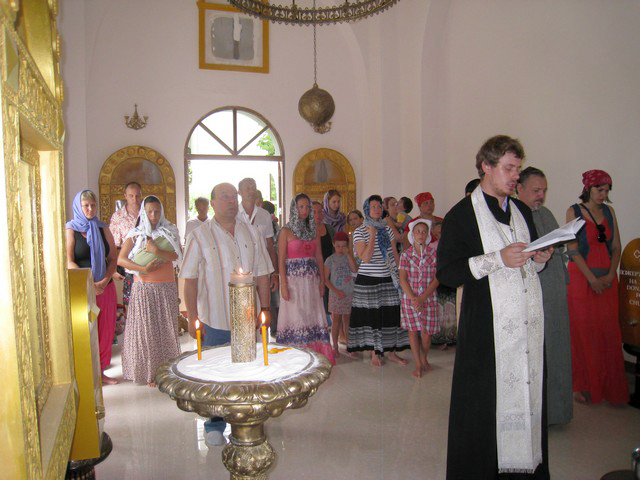
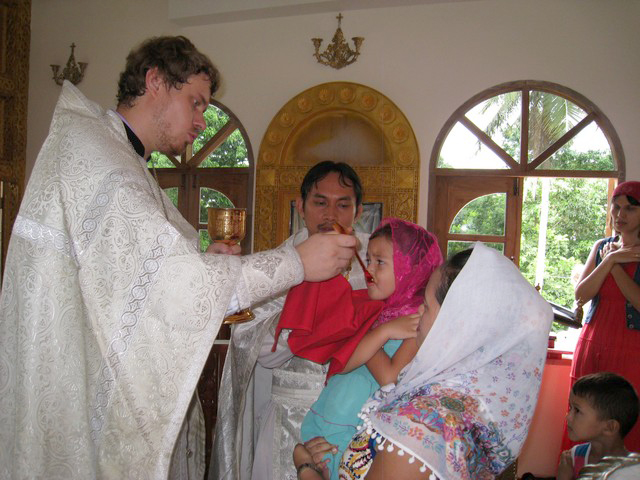
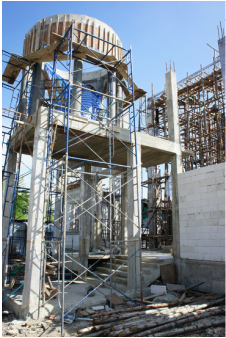
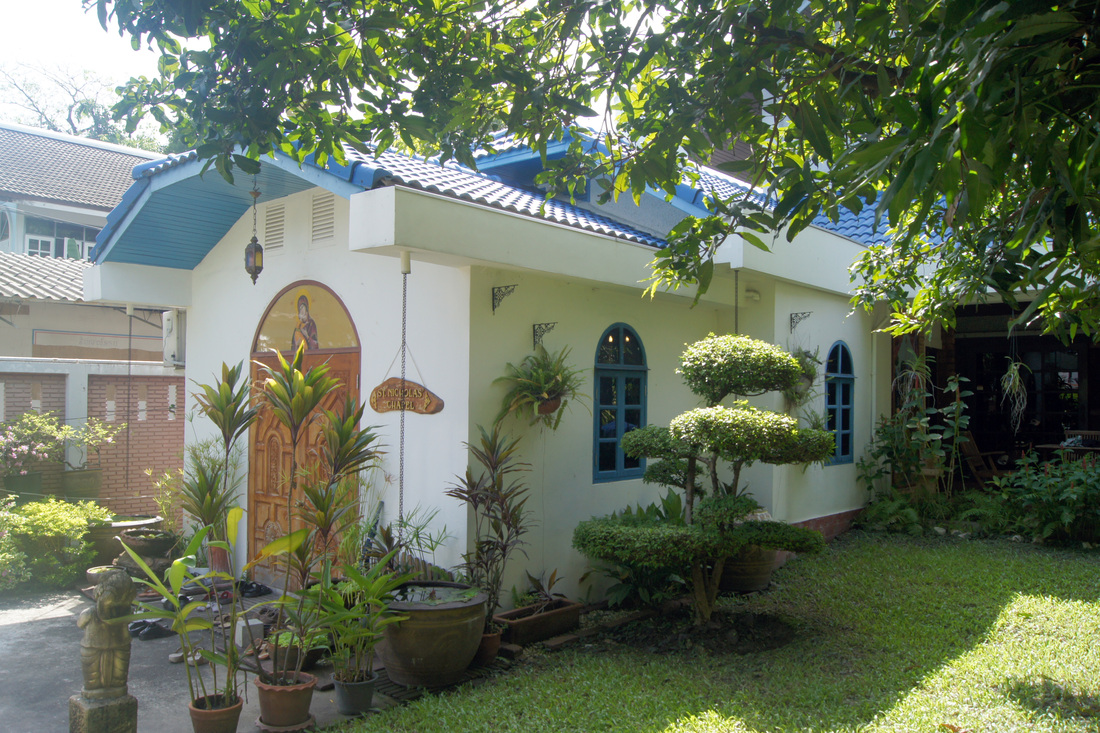
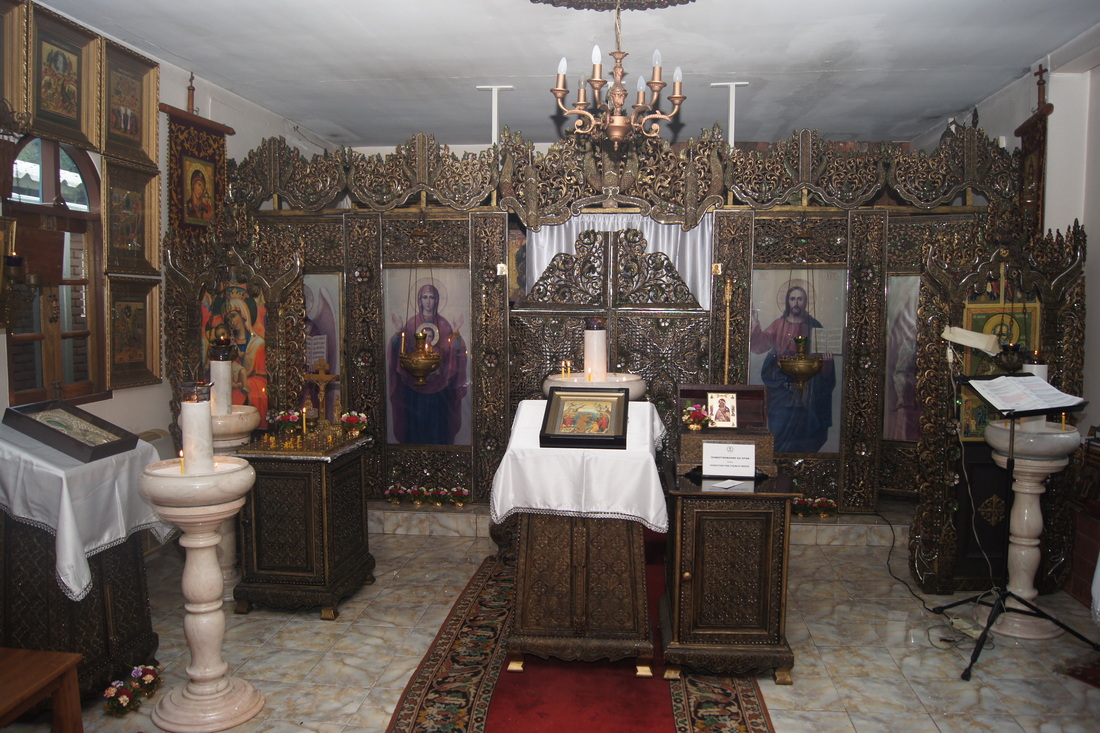
 RSS Feed
RSS Feed



